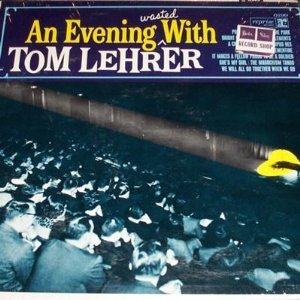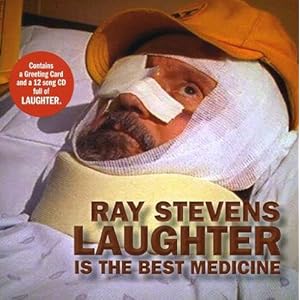Old-Time Comedians
Still funny after all these years!
Tom Lehrer, math professor and hilarious songwriter
An Evening Wasted With Tom Lehrer
That was the Year that Was
Homer and Jethro, America's Song Butchers

Best of Allan Sherman
Includes his hit, "Hello Mudda, Hello Fadda" (Camp Grenada)
Stan Freberg
Host of a 1950s TV show that aired many parodies of music of the time. His "Christmas Dragnet" is still heard during the holidays.
 Mickey Katz, Greatest Schticks
Mickey Katz, Greatest Schticks Borscht Belt takes on hits of the 1950s
Not-so-Old Comedians:
Ray Stevens Laughter is the Best Medicine
Includes "The Streak," his biggest hit
"Weird Al" Yankovic, master of the rock/pop song parody
Greatest Hits
Greatest Hits, Volume II
Stephen Lynch 3 Balloons and A Little Bit Special
(Parental Advisory, explicit content)
Tim Wilson It's a Sorry World and Songs for the Musically Disturbed
Garrison Keillor Songs of the Cat
The star of A Prairie Home Companion with Philip Brunelle
Classical Music Humorists
(You don't have to know classical music to get the humor, but it helps!)
Victor Borge, pianist famous for pratfalls and wrong-note humor
 Anna Russell, a soprano famous for "How to Write Your Own Gilbert and Sullivan Operetta" and describing Wagner's Ring Cycle with wry commentary.
Anna Russell, a soprano famous for "How to Write Your Own Gilbert and Sullivan Operetta" and describing Wagner's Ring Cycle with wry commentary.P.D.Q. Bach (Peter Schickele), serious composer under his real name, humorous composer as "P.D.Q. Bach. He is best known for narrating Beethoven's Fifth Symphony as if it were a sporting event, and for punnily titled instrumentals, such as the 1712 Overture.
The Educational Resources Collection has many of these artists' live performances on DVD, too!













